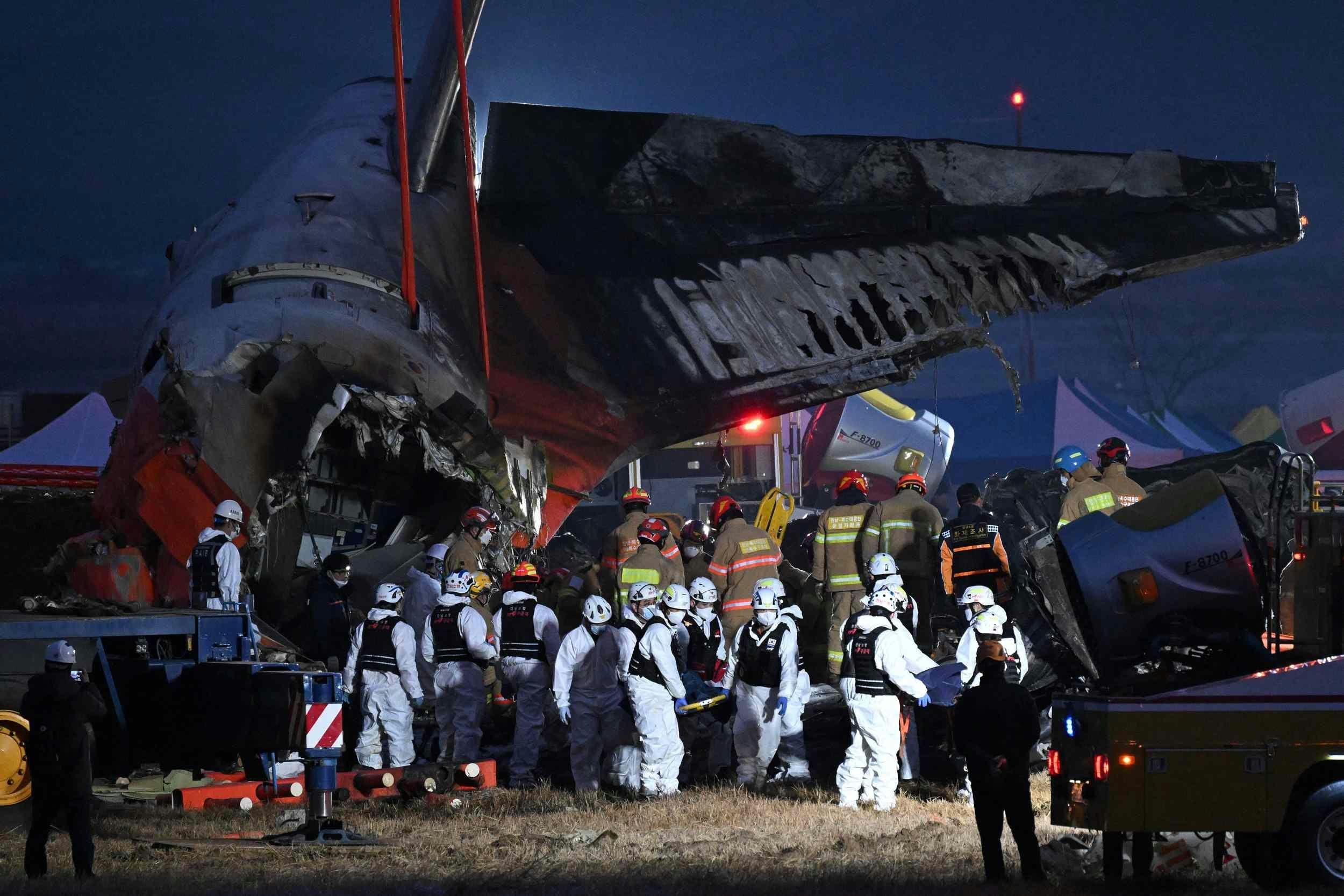AeroGenie — Il tuo copilota intelligente.
Tendenze
Categories
Jeju Air Crash Prompts Investigation After Pilots Shut Down Operating Engine

Jeju Air Crash Investigation Focuses on Engine Shutdown Decision
South Korea’s Aviation and Railway Accident Investigation Board (ARAIB) has released new findings concerning the recent Jeju Air crash at Muan International Airport, revealing a critical error by the flight crew. Following a bird strike during final approach, the pilots shut down the less-damaged engine, leaving the aircraft dependent on the severely compromised right engine. This decision is now central to the investigation, raising significant concerns about emergency procedures and pilot training standards.
Details of the Incident and Engine Failure
Preliminary reports indicate that Jeju Air Flight 7C2216, arriving from Bangkok, encountered bird strikes that damaged both engines. The right engine suffered catastrophic internal failure, emitting flames and smoke, while the left engine remained largely operational. Despite this, the flight crew chose to shut down the left engine, which was less affected, forcing the aircraft to rely solely on the failing right engine. Unable to maintain flight, the plane ultimately crash-landed.
Data from the cockpit voice recorder (CVR) and flight data recorder (FDR) ceased approximately four minutes before impact, likely due to a total power loss following the shutdown of both engines.
Reactions and Calls for Comprehensive Inquiry
The revelation has provoked strong reactions from victims’ families and the Jeju Air pilots’ union, who accuse authorities of prematurely attributing blame to the crew without full disclosure. A scheduled press briefing was canceled amid protests from bereaved relatives. Critics are urging investigators to broaden the scope of the inquiry to include airport infrastructure, particularly the concrete navigation barrier struck after the runway overrun, as well as air traffic control protocols and emergency response training.
Impact on Travel Confidence and Regional Tourism
The crash, which claimed the lives of two Thai nationals among others, has undermined confidence in low-cost carriers operating between Thailand and South Korea. Jeju Air reported over 68,000 ticket refunds within 24 hours of the incident. Thai tourism operators have noted increased hesitancy among South Korean travelers, with popular destinations such as Bangkok, Phuket, and Chiang Mai experiencing booking delays and cancellations amid growing safety concerns surrounding budget airlines on these routes.
Jeju Air’s Response and Industry Implications
Jeju Air’s CEO issued a public apology, pledging full cooperation with investigators and support for the victims’ families. The airline faces considerable reputational damage as regulators scrutinize whether deficiencies in training, standard operating procedures, or company culture contributed to the accident. The decision to shut down a functioning engine in favor of a failing one has intensified fears of procedural lapses during emergency situations.
Regulatory Measures and Aviation Safety Reforms
In response to the crash, South Korea’s Transport Ministry has ordered significant redesigns of airport infrastructure, including the removal or modification of rigid structures such as runway localizer barriers. Authorities are also reviewing bird-strike prevention measures, cockpit protocols, and pilot training standards. Thailand’s civil aviation authorities are closely monitoring the investigation, with potential implications for increased oversight of airports serving Jeju Air and other low-cost carriers.
Outlook for Tourism and Aviation Safety
Thailand’s Tourism Authority anticipates a possible decline in arrivals from South Korea in the coming months. The incident has triggered broader regulatory reviews that may reshape safety standards for budget airlines across Asia. Both travelers and industry stakeholders await further findings from the ongoing investigation, which could have lasting effects on regional aviation and tourism sectors.

Emirates Unveils Cabin Design for New Boeing 777X

Eighteen Years On, the Airbus A380 Remains Central to a $34 Billion Airline

How a boom in luxury airline seats is slowing down jet deliveries

Navitaire Outage Attributed to Planned Maintenance

DigiYatra Debuts Outside Aviation at India AI Impact Summit

Vietnam Orders Strengthen Boeing’s Commercial Outlook

Airbus Signals Uncertainty Over Future A400M Orders

JobsOhio Awards $2 Million Grant to Hartzell Propeller for Innovation Center

Collins Aerospace Tests Sidekick Autonomy Software on YFQ-42A for U.S. Air Force CCA Program

How the Airbus A350-1000 Compares to the Boeing 777
